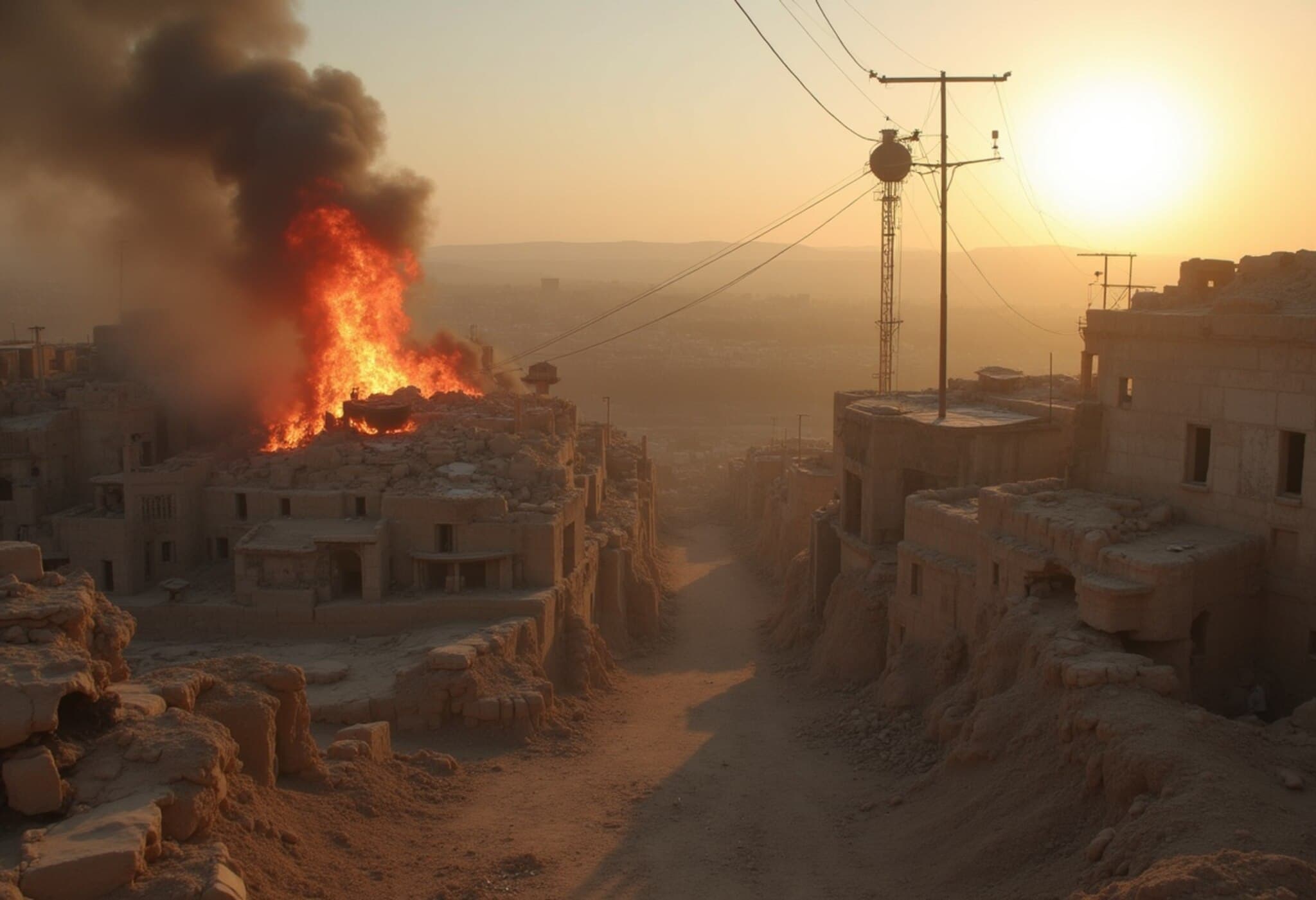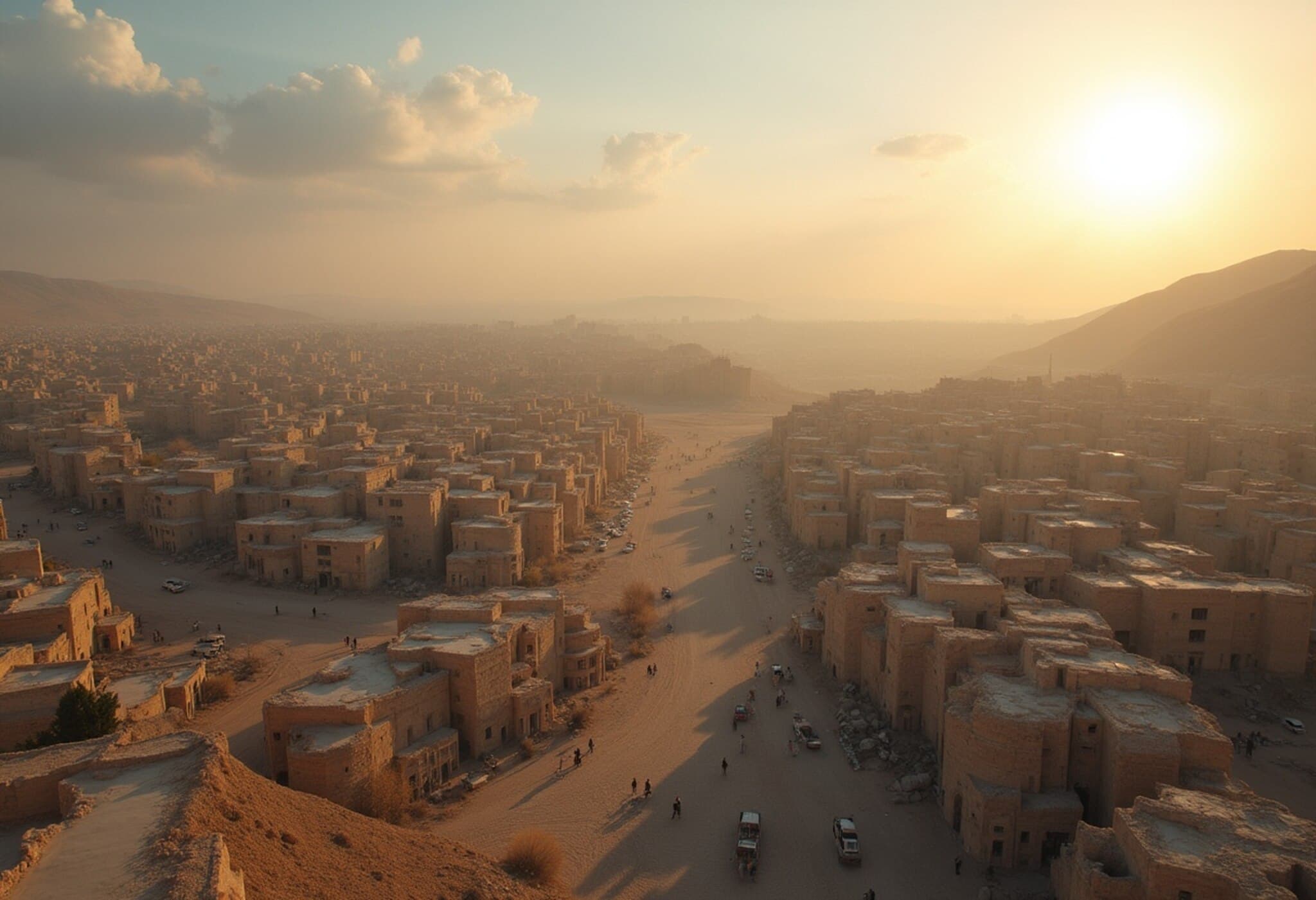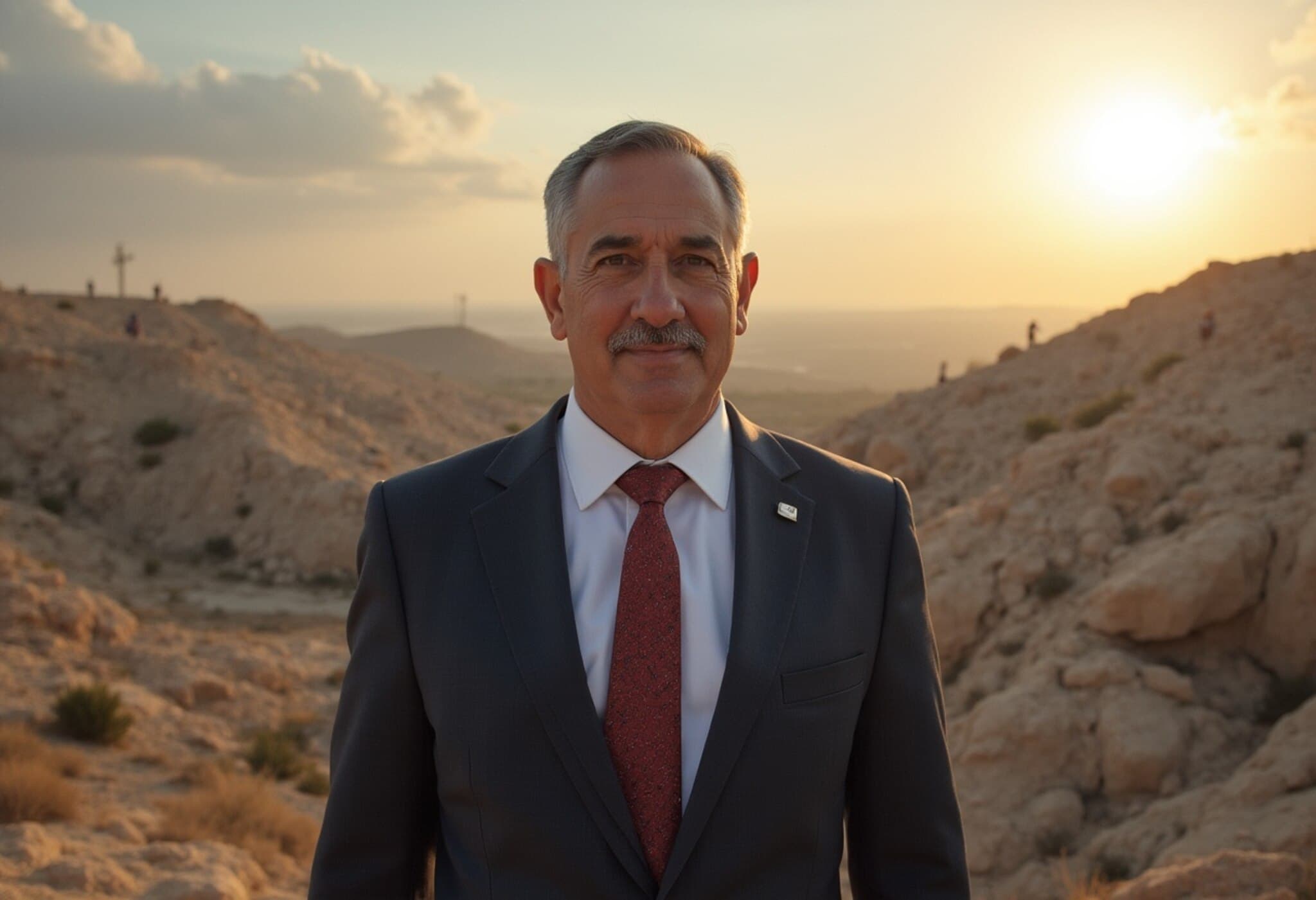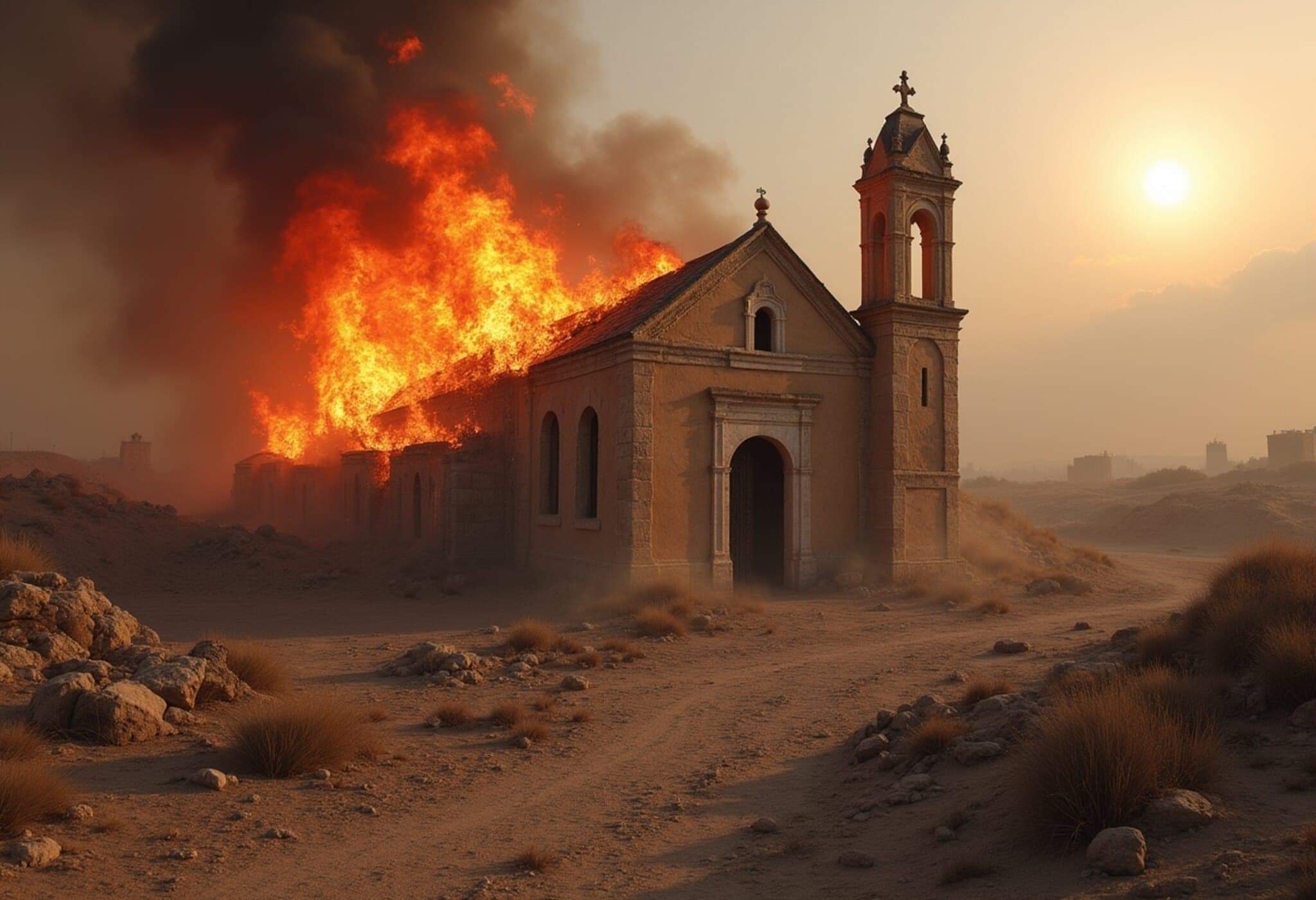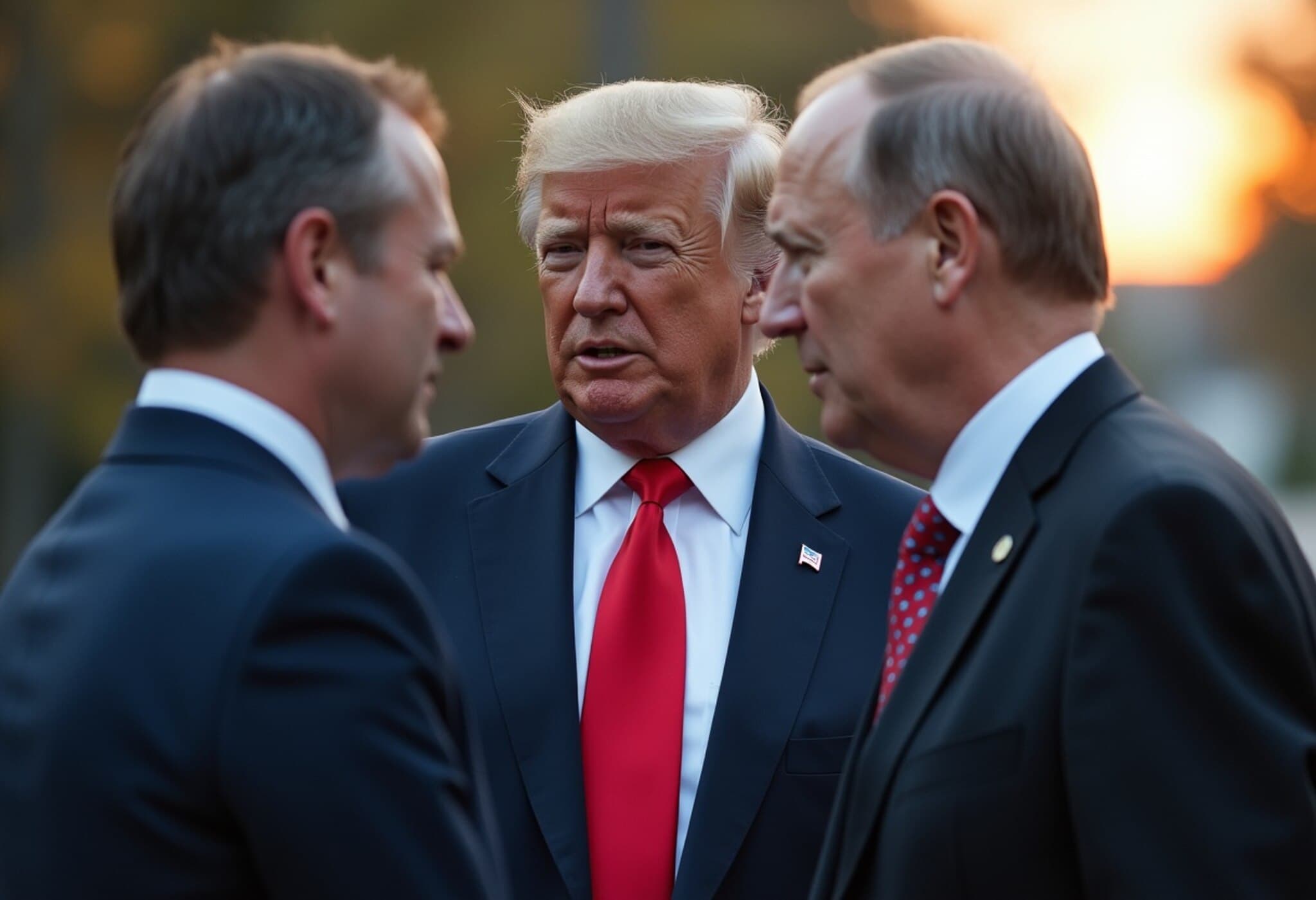Church Leaders Denounce Rising Settler Attacks in Palestinian Christian Village
In a poignant demonstration of solidarity, top Christian leaders from the Holy Land convened in the West Bank village of Taybeh on July 14, 2025, to condemn the recent upsurge in violence allegedly perpetrated by Israeli settlers. Their visit, rare and symbolic, highlighted the precarious situation faced by the last entirely Christian Palestinian community amidst ongoing regional turmoil.
Allegations of Settler Violence and Israeli Authority Complicity
Greek Orthodox Patriarch Theophilos III and Latin Patriarch Pierbattista Pizzaballa strongly criticized Israeli authorities for purportedly enabling a climate where settlers feel empowered to intimidate and attack Palestinians with impunity. In Taybeh, they pointed to a recent arson incident where fires were deliberately set near the cherished Saint George Greek Orthodox Church — a landmark with deep historical and spiritual significance.
The patriarchs reported that despite repeated emergency calls, Israeli officials failed to respond effectively, fueling fears of tacit support for settler aggression. They alleged additional provocations, including settlers driving cattle onto Palestinian farmlands, torching homes, and erecting threatening signs emblazoned with messages like, “There is no future for you here.” These actions, they argued, contribute to an atmosphere of fear and displacement.
The Context: Violence Amidst a Larger Conflict
These attacks occur amid a broader backdrop of heightened hostilities following the ongoing war in Gaza. Israel's military operations against militants have tragically claimed hundreds of Palestinian lives and displaced tens of thousands, paralleling a surge in violence from both settler and Palestinian factions. In this fraught environment, Taybeh and surrounding areas have witnessed disturbing episodes of lawlessness, with settlers and Palestinians clashing frequently.
Patriarch Pizzaballa issued a stark warning: “The only law in the West Bank is the law of power, of those who have the force, not the law. We must work tirelessly to restore the rule of law here so that everyone can seek justice through legal channels.” His words underscore a crisis of governance in the occupied territories, where civil rights and protections seem tenuous.
Impact on the Palestinian Christian Community
The Christian population in Israel and the Palestinian territories has steadily declined over the decades, diminishing to a small minority due to a combination of factors such as lower birth rates, emigration driven by conflict and economic stagnation, and targeted violence.
Recent violent episodes, like the July 11 settler attack that killed two young people in the village of Al-Mazraa a-Sharqiya near Taybeh, have further underscored the vulnerability of these communities. Hundreds gathered there Sunday for the funeral, reflecting widespread grief and solidarity amidst ongoing insecurity.
Calls for Accountability and International Attention
The church leaders, representing centuries-old religious institutions, have urged Israeli authorities to open transparent investigations into settler violence and to hold perpetrators accountable. Their joint statement emphasized that enabling or ignoring these acts contributes to a dangerous erosion of peace and coexistence.
Israel’s military has yet to comment on the latest allegations, though it has previously maintained that it acts against unlawful settler behavior while grappling with widespread unrest marked by stone-throwing and violent confrontations.
Expert Insight: The Stakes for Peace and Stability
Regional analysts highlight that the escalation in settler violence is not merely a localized issue but a symptom of broader systemic challenges within the Israeli-Palestinian conflict. Settler expansion, legal ambiguities, and the breakdown of law enforcement exacerbate tensions, undermining prospects for durable peace.
Furthermore, the depletion of the Christian Palestinian population signals a loss of cultural and religious diversity that has historically enriched the region. Protecting minority communities in conflict zones like the West Bank is both a humanitarian imperative and a marker of any peace process’s success.
Looking Ahead: A Plea for Justice and Healing
The visit by Patriarchs Theophilos III and Pizzaballa is a clarion call for renewed commitment to justice, protection of minority rights, and restoration of lawful order. As violence escalates, their message shines a hopeful light, reminding all parties of the urgent need to uphold human dignity and safeguard sacred spaces.
Editor’s Note:
This unfolding situation raises critical questions about the responsibility of state authorities in protecting vulnerable communities and ensuring accountability amid conflict. How can international actors support efforts to restore the rule of law in the West Bank? What measures might safeguard the dwindling Christian minority and foster coexistence in one of the world’s most contested regions? These remain urgent issues demanding our close attention.

